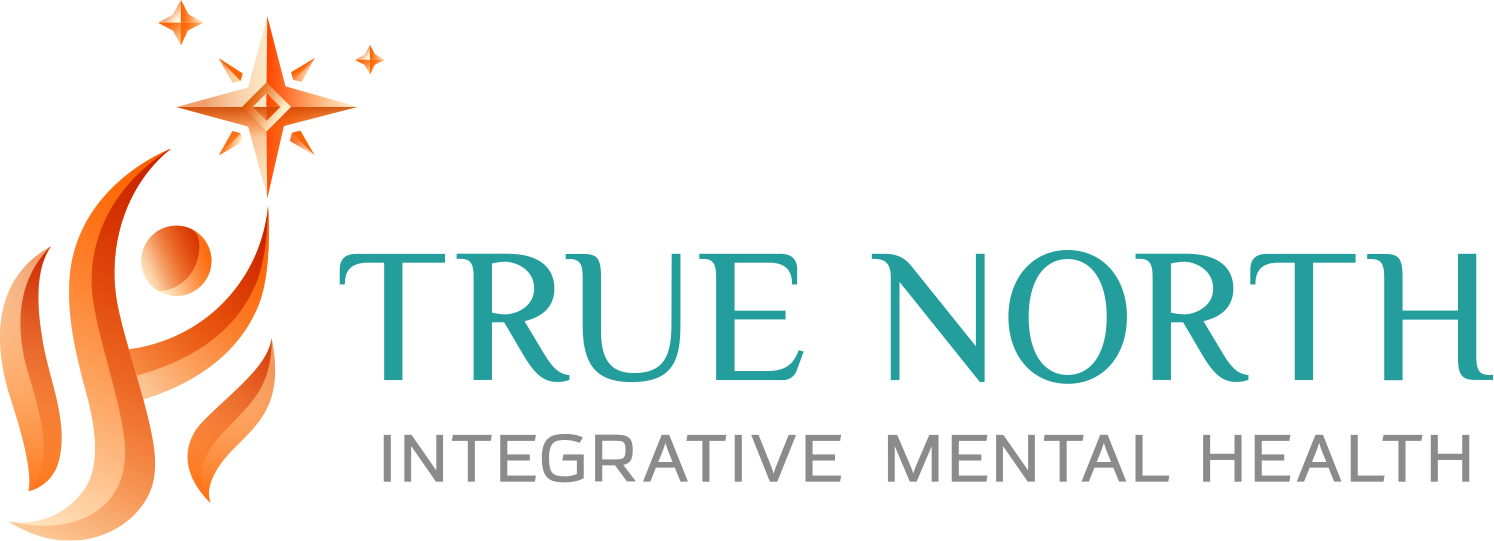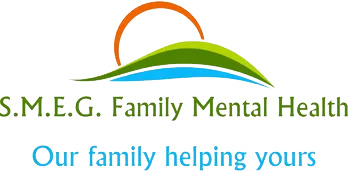Is TMS Therapy Right for You? See the True North IMH Guide
Dr. Jamie Rogers • December 4, 2024
Mental health treatment has evolved significantly over the years, offering new hope to those who haven't found relief through traditional methods. One such innovation is Transcranial Magnetic Stimulation (TMS) therapy, an FDA-approved, non-invasive treatment for depression and other mental health conditions. But is TMS therapy the right option for you?
This guide will explore what TMS is, who it's suited for, how it works, and all the key factors to consider when evaluating this treatment. By the end of this blog, you'll have the information you need to make an informed decision about TMS therapy.
What Is TMS Therapy?
TMS therapy is a cutting-edge, non-invasive medical treatment that uses magnetic fields to stimulate specific parts of the brain. This technique is primarily used to treat patients with depression, especially when other methods like medication and psychotherapy haven't been effective.
During a TMS session, magnetic pulses are delivered to the brain via a coil placed on the scalp, targeting the areas associated with mood regulation. Unlike Electroconvulsive Therapy (ECT), TMS does not require anesthesia and does not involve inducing seizures, making it a safer and more accessible option for many patients.
Is TMS Therapy Right For Me?
Are you searching for an innovative treatment option to address your mental health concerns? Transcranial Magnetic Stimulation (TMS) might be the answer you've been looking for.
This non-invasive procedure has gained recognition in recent years as a promising therapy for conditions such as depression, anxiety, and other mental health disorders. In this blog post, we will explore the benefits of TMS, its potential effectiveness, and how it works.
But don't just take our word for it. According to a study published in theJournal of Clinical Psychiatry, TMS has shown significant improvement in depressive symptoms, offering hope for those seeking alternative treatment options.
So, let's explore the world of TMS and discover if it's the right choice for you.
Who Can Benefit From TMS?
TMS therapy is most commonly prescribed for people suffering from treatment-resistant depression (TRD)—a form of depression that hasn't responded well to medication or psychotherapy. Other conditions that may benefit from TMS include:
- Generalized Anxiety Disorder (GAD)
- Obsessive-Compulsive Disorder (OCD)
- Post-Traumatic Stress Disorder (PTSD)
- Chronic Pain and Fibromyalgia
- Smoking Cessation (in some cases)
If you've struggled with ongoing mental health challenges and feel like you've exhausted other options, TMS might be worth exploring. However, it’s typically not recommended for individuals with certain medical conditions, such as a history of seizures or metal implants in the head.
How Does TMS Work on the Brain?
At the core of TMS therapy is the concept of magnetic stimulation. By delivering magnetic pulses to the prefrontal cortex (the part of the brain associated with mood regulation), TMS aims to "awaken" underactive neural pathways. This stimulation encourages brain cells to communicate more effectively, potentially alleviating depressive symptoms.
For many patients, this improved brain activity translates into better mood, reduced anxiety, and overall enhanced mental health. Unlike medications, which target the entire brain chemically, TMS is a localized and non-systemic approach, meaning it impacts only the targeted areas.
The Process of Undergoing TMS
Wondering what to expect if you sign up for TMS? Here’s a breakdown of the TMS therapy process:
Initial Assessment: You'll begin with a consultation to confirm your diagnosis and determine if TMS is a fit for your needs.
Mapping the Treatment Area: Your doctor will map out the best location on your scalp to stimulate the target areas of your brain. This ensures precision and effectiveness.
Regular Sessions: A typical TMS schedule involves daily sessions (five times per week) for four to six weeks. Each session takes about 20 to 40 minutes.
Relax and Rest: During each session, you'll remain awake as the machine delivers magnetic pulses. Patients generally describe the sensations as mild tapping.
Follow-Up:
Many providers recommend periodic follow-up sessions or "booster sessions" to maintain results over time.
Comparing TMS With Other Treatments
If you’re considering TMS, you might wonder how it stacks up against traditional methods, like medication or psychotherapy. Here's a quick comparison:
Medication
TMS is often a backup for those who don’t respond to antidepressants or experience side effects, such as weight gain or libido changes, from medication. TMS focuses directly on brain activity without introducing foreign chemicals into the body.
Psychotherapy
Therapists often recommend combining TMS with psychotherapy for a well-rounded approach. While therapy focuses on emotional patterns and coping techniques, TMS biologically targets the brain.
Electroconvulsive Therapy (ECT)
ECT is another non-responsive treatment for severe depression; however, it requires anesthesia and carries more risks than TMS. TMS is less invasive and has fewer side effects than ECT. Ultimately, TMS isn’t meant to replace other treatments but rather to complement them.
TMS Safety and Side Effects
TMS is generally considered a safe medical treatment with minimal side effects. The most common side effects include:
- Mild headaches after sessions
- Scalp discomfort at the treatment site
- Lightheadedness
These side effects are usually mild and temporary, subsiding shortly after treatment. Serious side effects such as seizures are extremely rare when performed by trained professionals. Always disclose your complete medical history to ensure a safe and tailored treatment plan.
Success Rates and Long-Term Effects of TMS
Clinical studies suggest that up to 70% of patients with treatment-resistant depression experience significant symptom relief with TMS. For many, the benefits extend beyond the initial treatment, with sustained improvements in mood and mental health.
Some patients may require booster sessions as maintenance or part of a long-term strategy, especially during particularly stressful life events. The likelihood of long-term success often increases when TMS is integrated with lifestyle changes, therapy, or other treatments.
Lefaucheur, J. P. et al. (2020). Evidence-based guidelines on the therapeutic use of repetitive transcranial magnetic stimulation (rTMS): An update (2014–2018). Clinical Neurophysiology, 131(2), 474-528. doi: 10.1016/j.clinph.2019.11.002
Cost of TMS Therapy and Insurance Coverage
Cost is a valid concern when exploring TMS therapy. Prices can vary for a full treatment course, depending on your provider and location. The good news is that most insurance plans now cover TMS for treatment-resistant depression. You’ll need approval from your provider to verify coverage, which your clinic can often assist with.
Some providers also offer payment plans or sliding scales to make TMS more accessible to those without insurance coverage.
How to Find a Reputable TMS Provider
The right TMS provider will offer care tailored to your unique needs. Here’s how to find one:
- Ask for Referrals: Consult your therapist, psychiatrist, or primary care physician for recommendations.
- Check Credentials: Look for board-certified psychiatrists or clinics with an excellent track record.
- Read Reviews: Patient testimonials and third-party reviews can shed light on the quality of service a clinic provides.
- Schedule a Consultation: Many clinics offer free consultations—use this opportunity to ask questions and assess their level of care.
Final Thoughts: Is TMS Right for You?
TMS therapy offers newfound hope to countless individuals who haven’t found relief through traditional treatments like medication or talk therapy. It’s safe, relatively non-invasive, and boasts impressive success rates, particularly for conditions like treatment-resistant depression.
That said, TMS isn't a one-size-fits-all solution. The best way to determine if this therapy is right for you is by consulting a trusted medical professional who can assess your unique circumstances and guide you through the decision-making process.
Are you local to Greenville NC and ready to explore the potential of TMS therapy for your mental health journey? Contact us today for a consultation.
Visit
https://www.truenorthimh.com/contact to get started.

Our Helpful Links
Schedule a Consultation
Get help with depression today! It's important to know that you are not alone.

